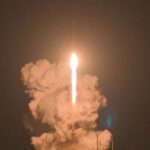On the 15th, U.S. President Donald Trump stated regarding the Russia-Ukraine conflict that he is “not taking sides” and denied ever encouraging Ukraine to strike Moscow. On the same day, Russian Deputy Foreign Minister Sergei Ryabkov said that any attempts to impose conditions or ultimatums on Russia are unacceptable. He emphasized that if diplomatic efforts fail, Russia will continue its special military operation in Ukraine. Meanwhile, the Ukrainian parliament approved another extension of the country’s wartime state and also voted to temporarily withdraw from the Ottawa Treaty banning landmines.
Trump: “I’m not taking sides”
On the 15th, during an interview with reporters on the South Lawn of the White House, Donald Trump said that Ukraine should not target Russia’s capital, Moscow. This comes in response to earlier reports claiming that Trump had encouraged Ukrainian President Zelensky to strike Moscow with long-range weapons.
NBC News reported that Trump made the remarks when asked whether he believed Ukraine should target Moscow. In response to a question about whether the U.S. would supply Ukraine with long-range missiles, Trump said, “No, we’re not going to do that.”
When asked if he sided with Ukraine, Trump replied, “I’m not taking sides.” He also stated that Russian President Vladimir Putin should agree to a ceasefire deal within a 50-day “deadline,” or face sanctions.
According to a July 15 report by the Financial Times, Trump recently urged Ukrainian President Zelensky during a phone call to intensify strikes on Russian territory. He reportedly even asked whether Ukraine could hit Moscow and Russia’s second-largest city, St. Petersburg, if provided with long-range U.S. weapons. A White House spokesperson later denied the claim, accusing the Financial Times of taking comments out of context.
The report cited two sources familiar with the July 4 call, revealing that Trump asked Zelensky: “Vladimir, can you strike Moscow? … Can you hit St. Petersburg?” Zelensky reportedly replied, “Of course we can. Just give us the weapons and we will.”
Russian Deputy FM: Ultimatums Against Russia Are Unacceptable
On July 15, Russian Deputy Foreign Minister Sergey Ryabkov responded to Trump’s recent comments on Russia, stating that any attempts to impose conditions or ultimatums on Russia are unacceptable. He stressed that if diplomacy fails, Russia’s special military operation in Ukraine will continue.
Speaking to the media in Moscow, Ryabkov said Russia’s position on the matter is “unshakable” and urged the U.S. and NATO to take it “extremely seriously.” He noted that President Putin has repeatedly said, “We are open to negotiations; diplomacy is the preferred path.”
On July 14, Trump stated that the U.S. would provide military aid to Ukraine through NATO and warned that if Russia fails to reach a peace deal with Ukraine within 50 days, the U.S. would impose “very severe” tariffs on Moscow.
Also on the 15th, Russian Deputy Foreign Minister Alexander Grushko told reporters in Moscow that Russia opposes U.S. plans to supply Ukraine with weapons through NATO, saying it proves once again that “NATO has no real interest in peace.”
Regarding Trump’s tariff threat, Grushko called it “baffling,” adding, “Any agreement must be based on negotiations, but Ukraine is currently absent from the negotiating table.” He pointed out that Trump’s July 14 remarks did not urge Ukraine to respond to Russia’s willingness to negotiate. According to him, this shows the West has no real intention of fostering peace talks and is more interested in prolonging the conflict to weaken Russia.
Kremlin Press Secretary Dmitry Peskov added on July 15 that Russia is still waiting for Ukraine to propose a date for a third round of direct talks. “So far, no suggestions have been made,” he said. Judging by recent statements from Europe, he added, “they seem to prefer escalation.” Decisions from the U.S., NATO, and the EU “appear to signal to Ukraine to continue the war.”
Ukrainian Parliament Extends Wartime State, Approves Temporary Withdrawal from Landmine Ban Treaty
According to a July 15 report by Ukraine’s national news agency, the Verkhovna Rada (Ukrainian Parliament) voted to approve President Volodymyr Zelensky’s July 14 proposal to extend the country’s wartime state and military mobilization for another 90 days.

MP Yaroslav Zheleznyak was quoted as saying that 320 lawmakers voted in favor, far surpassing the required minimum of 226 votes.
Under the proposal, Ukraine’s wartime state and mobilization, originally set to expire on August 6, will now be extended until November 5. This marks the 16th time the Verkhovna Rada has extended the state of war since the escalation of the Russia-Ukraine conflict in February 2022.
The parliament also approved a motion for Ukraine to temporarily withdraw from the Ottawa Treaty, which bans the use of anti-personnel landmines.
According to an explanatory note from the Rada, one of the main reasons for Ukraine’s withdrawal is the unequal status between Ukraine and Russia in terms of landmine restrictions—Russia is not a party to the Ottawa Treaty. This, the note states, gives Russia a strategic advantage and limits Ukraine’s ability to defend itself. Ukraine will remain outside the treaty until a full ceasefire with Russia is reached.
The Ottawa Treaty, which bans the use, stockpiling, production, and transfer of anti-personnel landmines, came into effect in 1999. Ukraine joined in May 2005 following parliamentary approval. On June 29, President Zelensky signed a decree endorsing the National Security and Defense Council’s decision to withdraw from the treaty. The Ukrainian Cabinet has since begun the formal withdrawal process.













Leave a comment